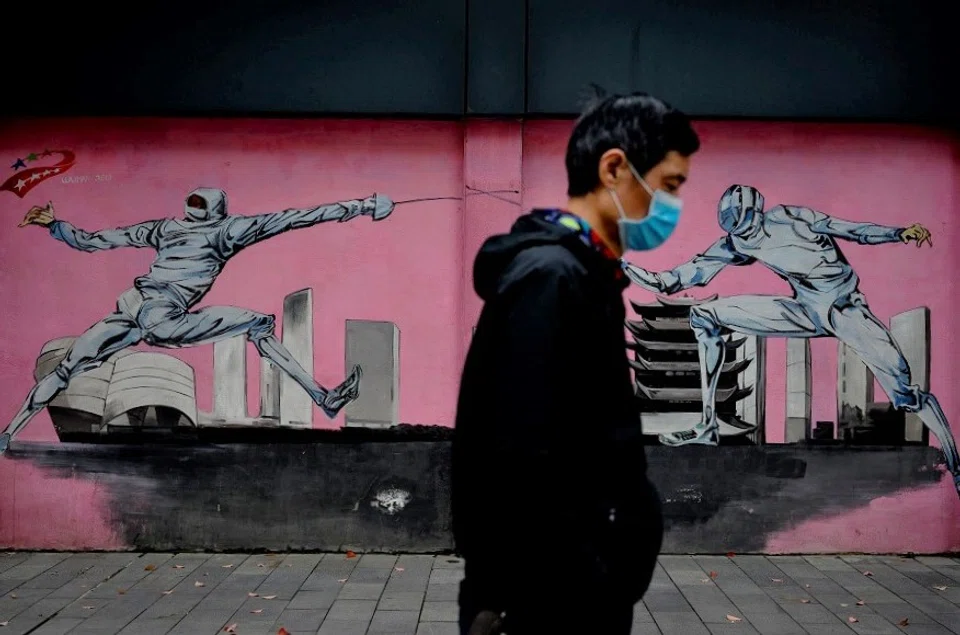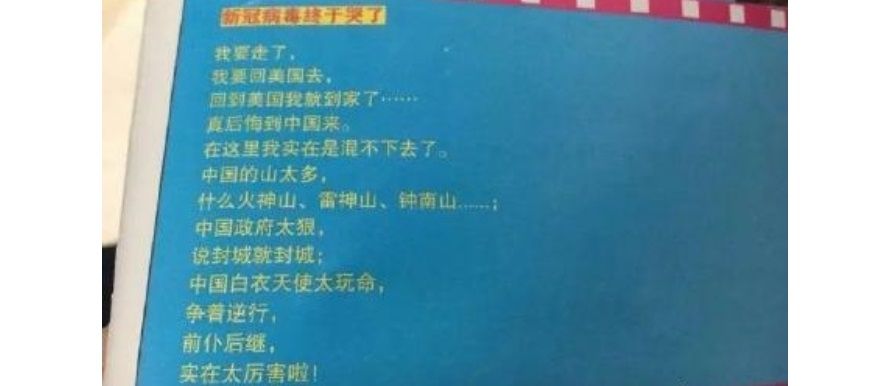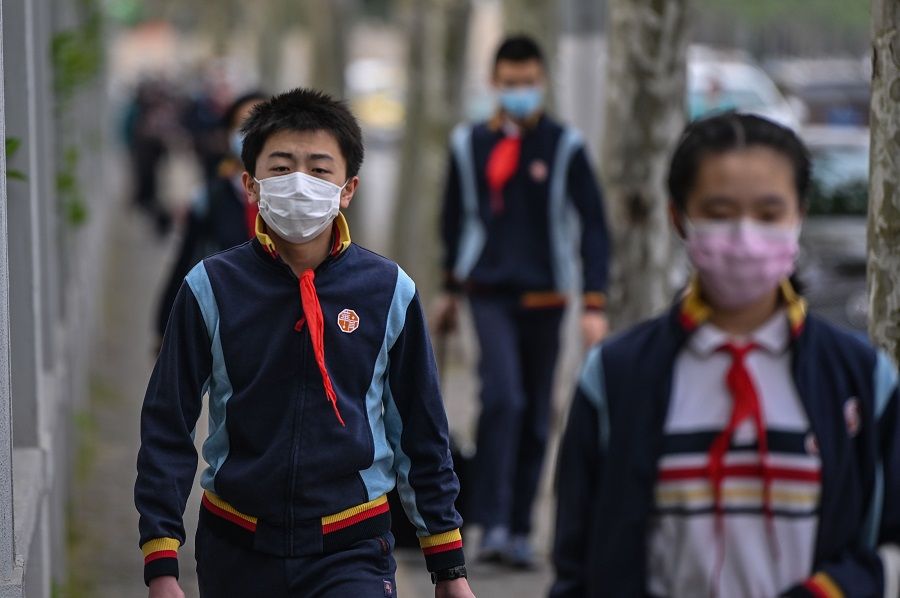Anti-American poem sparks fierce debates in China

China, and the Western countries led by the US, are embroiled in a blame game over the Covid-19 pandemic. Displeasure towards Western countries has also seeped into Chinese society.
Recently, a short poem titled "The Coronavirus is Finally Crying" (新冠病毒终于哭了) was published in a middle school student newspaper with the largest circulation in China. It sang the praises of China's effective containment of the virus and claimed that the coronavirus had originated in the US. Such rhetoric led some Chinese commentators to criticise the poem for fanning the flames of divisiveness and hatred.
The poem, published in the newspaper Zhong Xuesheng Daobao (《中学生导报》), was written in first person from the coronavirus' point of view. It read: "I am leaving. I am going back to America, going back to my home... I really regret coming to China. I can't survive here anymore. There are too many "mountains" (山 shan) in China, they've got Huoshenshan, Leishenshan, and Zhong Nanshan... The Chinese government is too harsh, they order a lockdown and follow it through; China's angels in white are too bold, all fighting to fight me, one after the other. They're simply too great for me to handle!"

Zhong Xuesheng Daobao is considered middle school students' "food for the mind". It is the top-ranked educational news supplement among all second-tier national publications and enjoys a large circulation in schools.
Netizens were split into two extreme camps after the poem was released on the Chinese internet on 28 April. Some netizens thought that the poem "made them speechless with how effusive in praise it was", while some others were of the view that without the origin of the virus being confirmed, "such a poem pointing fingers at others should not appear in front of children". Some even criticised the poem as being "poisonous". However, a substantial number of netizens showed support for the poem, saying that its content was "the truth" and that there was "nothing wrong with it".
It claimed that Zhong Xuesheng Daobao had been hacked and that the published poem was not a decision of its editorial department.
A commentary signed "Yu Ping" was published on The Beijing News on 28 April. It said, "I don't know if the coronavirus is crying. But I dare say that after reading this freakish children's poem, many parents would be the ones crying."
The commentary expressed the view that the poem fosters divisiveness and hatred, and may have the adverse effect of inspiring feelings of hatred in children. Furthermore, it teaches them to disregard right and wrong, and leads their "three views" - worldview, value system, view of life - astray. The commentary writer called strongly for the "poisonous poem" to be removed from schools.
The parent company of Zhong Xuesheng Daobao, Lanzhou Daily (《兰州日报社》), released a report on the night of 28 April stating that it has been wronged. It claimed that Zhong Xuesheng Daobao had been hacked and that the published poem was not a decision of its editorial department.
Even if the poem was a prank played by Chinese netizens, it shows that populism in China is rearing its head amid the raging public sentiment war between China and Western countries. In actual fact, during the period of the pandemic in China, instances of stirring up national and racial hatred have already occurred: over a month ago, a porridge store manager in Shenyang openly hung up a banner that read: "Warmly celebrate the US epidemic!" The store manager was harshly criticised by many netizens and sacked by the head office in the end.

With the largely effective containment of the outbreak through strict measures in China, it is natural for some netizens to pen a poem of self-praise after becoming a "model student" in the battle against the coronavirus. However, the first half of the poem touched on highly sensitive topics regarding the origins of the virus and blatantly pointed fingers at the US. This is the same as US President Donald Trump's claim that the virus had originated in a Wuhan lab - alleging something to be true before adequate evidence has been found. These actions do nothing to resolve conflicts and misunderstandings.
This is also similar to how Chinese public opinion was rife in March this year that the virus originated in the US Army's Fort Detrick bioweapons lab and was brought to Wuhan when US military members attended the Military World Games in October 2019. Also in March this year, Chinese foreign ministry spokesperson Zhao Lijian chimed in on alleged claims that the virus came from the US military, worsening China-US relations that were already tense, while at the same time deepening the Western public's distrust of China in issues regarding the coronavirus.
On the other hand, alerted to a surge in populist and patriotic sentiments, Chinese media recently called for Chinese netizens to restrain themselves in their counterattacks against the US in the public sentiment war. Global Times editor Hu Xijin published an article on 28 April directed at "online patriots", calling them to "exercise effective self-control, always maintain the ability to observe the trend and development of an issue, and not to get too emotional".

Hu said that amid a public opinion battle with the US, China has to avoid descending into anti-Americanism and becoming angry at every provocation. He warned that if China decides to go against the US strongly, it has to be prepared to suffer losses.
"There is no need to resort to tit-for-tat measures and engage in an intense war of words. This will help China in its efforts to shape international public opinion." - Chinese academic
Has the coronavirus finally cried? If the virus is a massive destructive force made to destroy humankind, then in the same way that it is ruining the human body during the pandemic, it will also destroy relationships between people, and mutual trust between countries.
Recently, I was discussing China's current diplomacy dilemma with an academic. The academic emphasised the importance of a meticulous approach and response. He shared, "As a major power, China could, to a large extent, display more tolerance when faced with attacks and criticisms from the West. There is no need to resort to tit-for-tat measures and engage in an intense war of words. This will help China in its efforts to shape international public opinion."
If China is not easily triggered into retaliation by US public opinion and chooses tolerance instead of tit-for-tat in its dealings with the US, I believe the day the coronavirus finally cries would arrive sooner.
